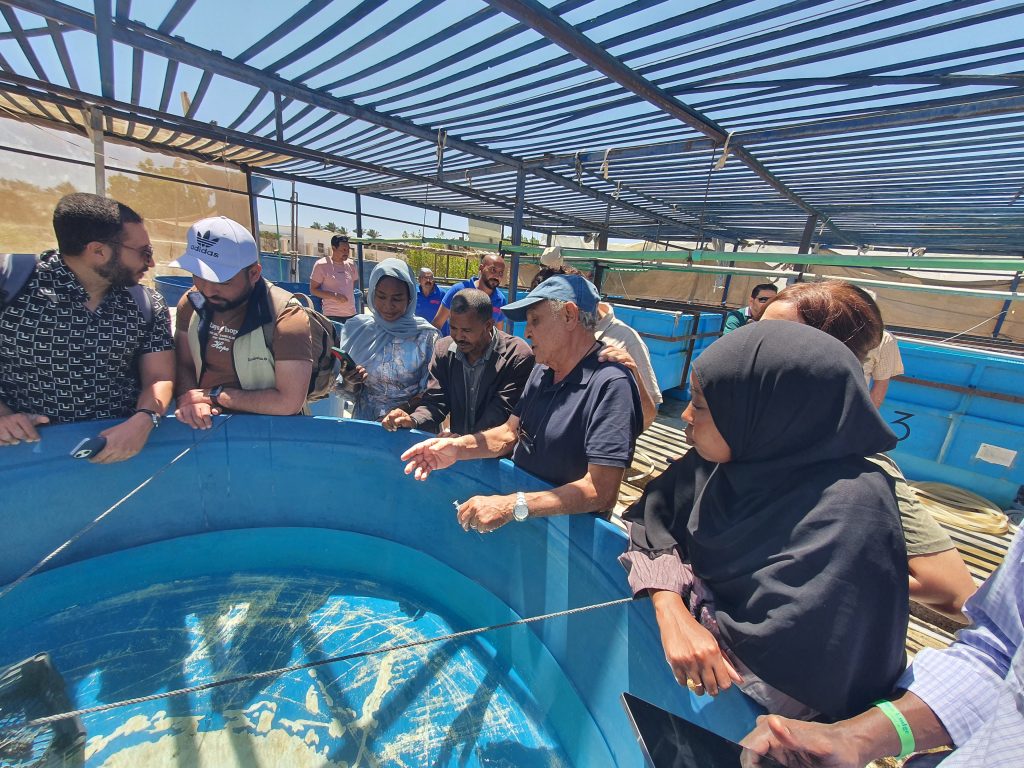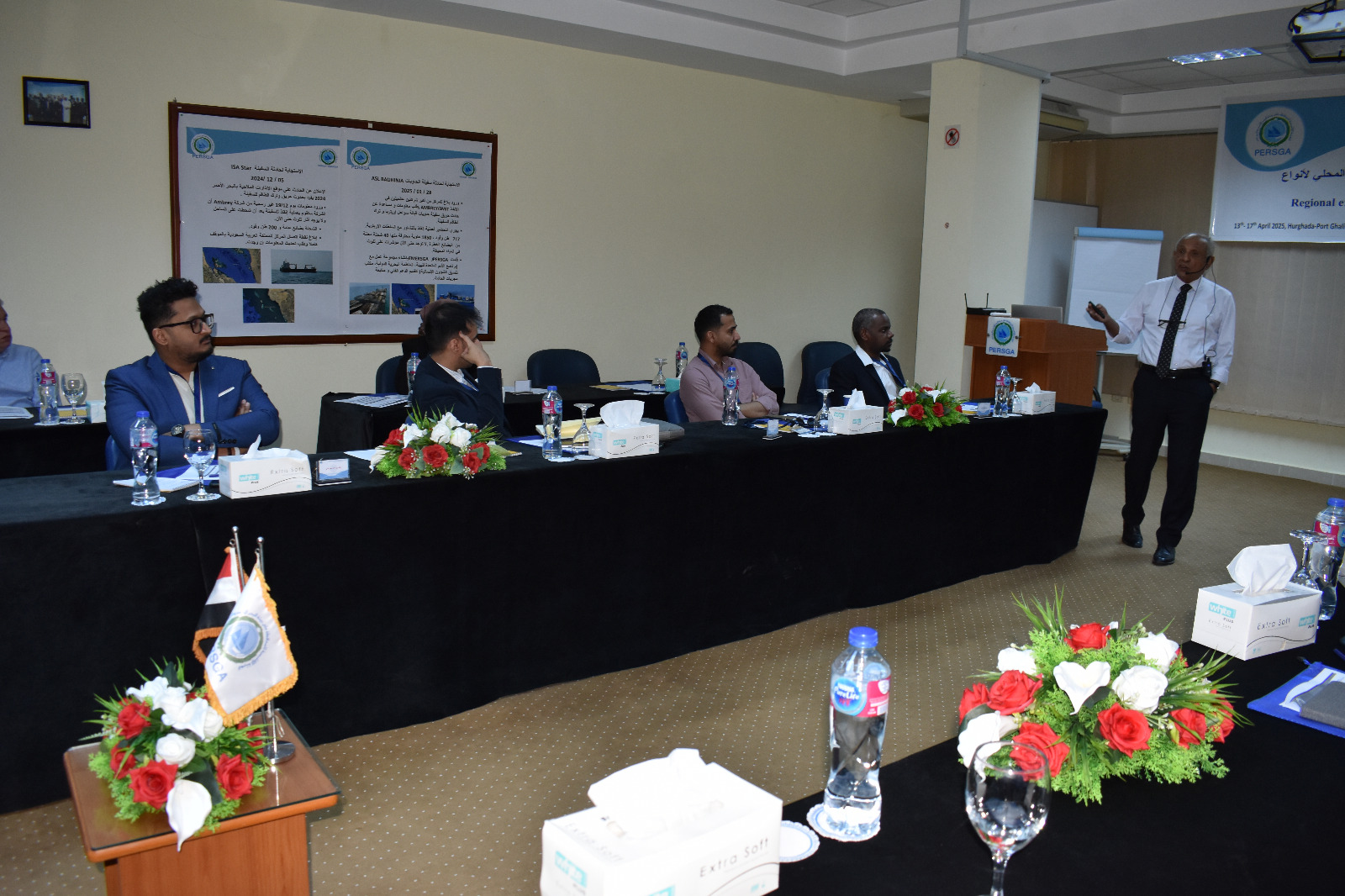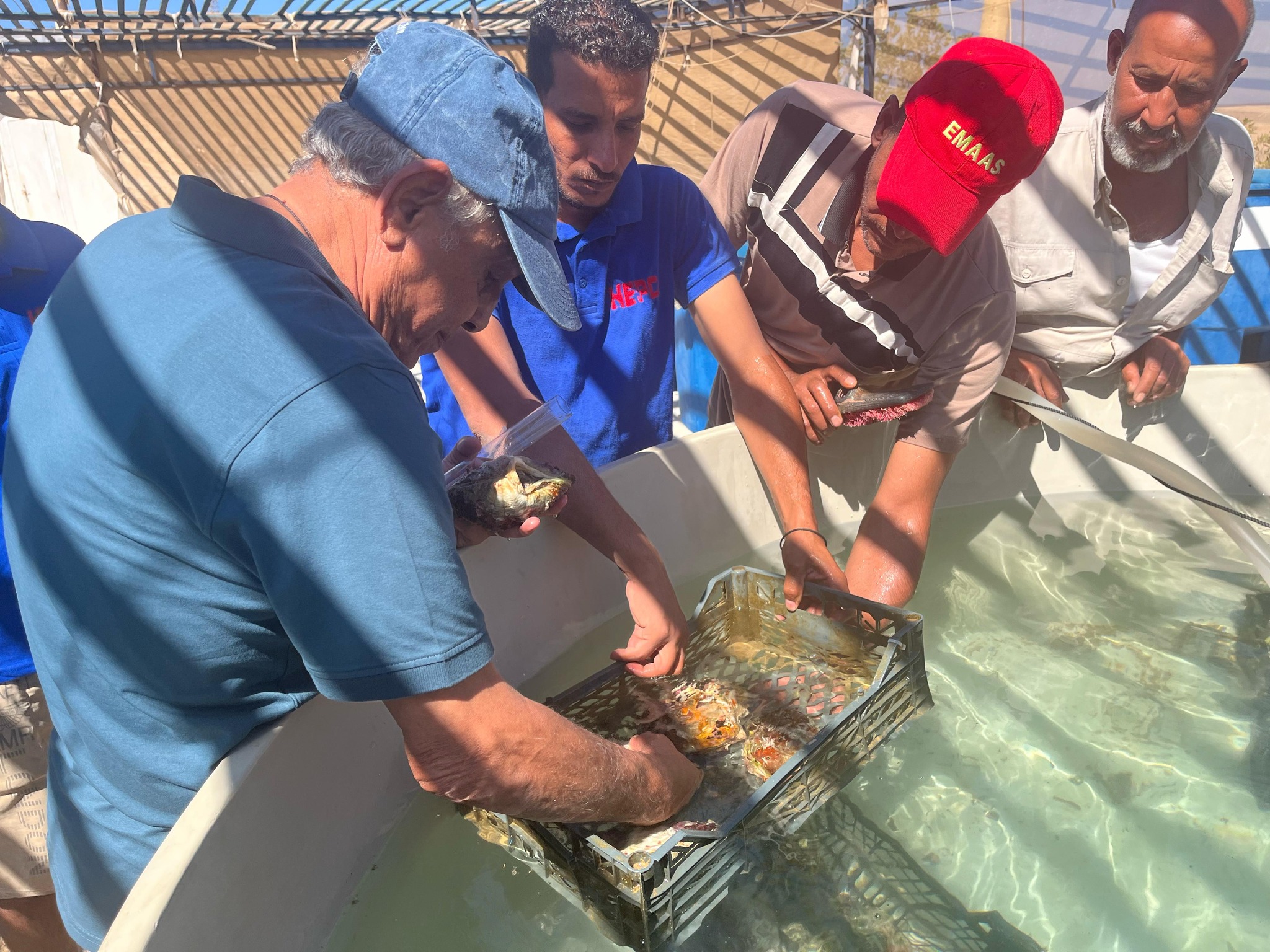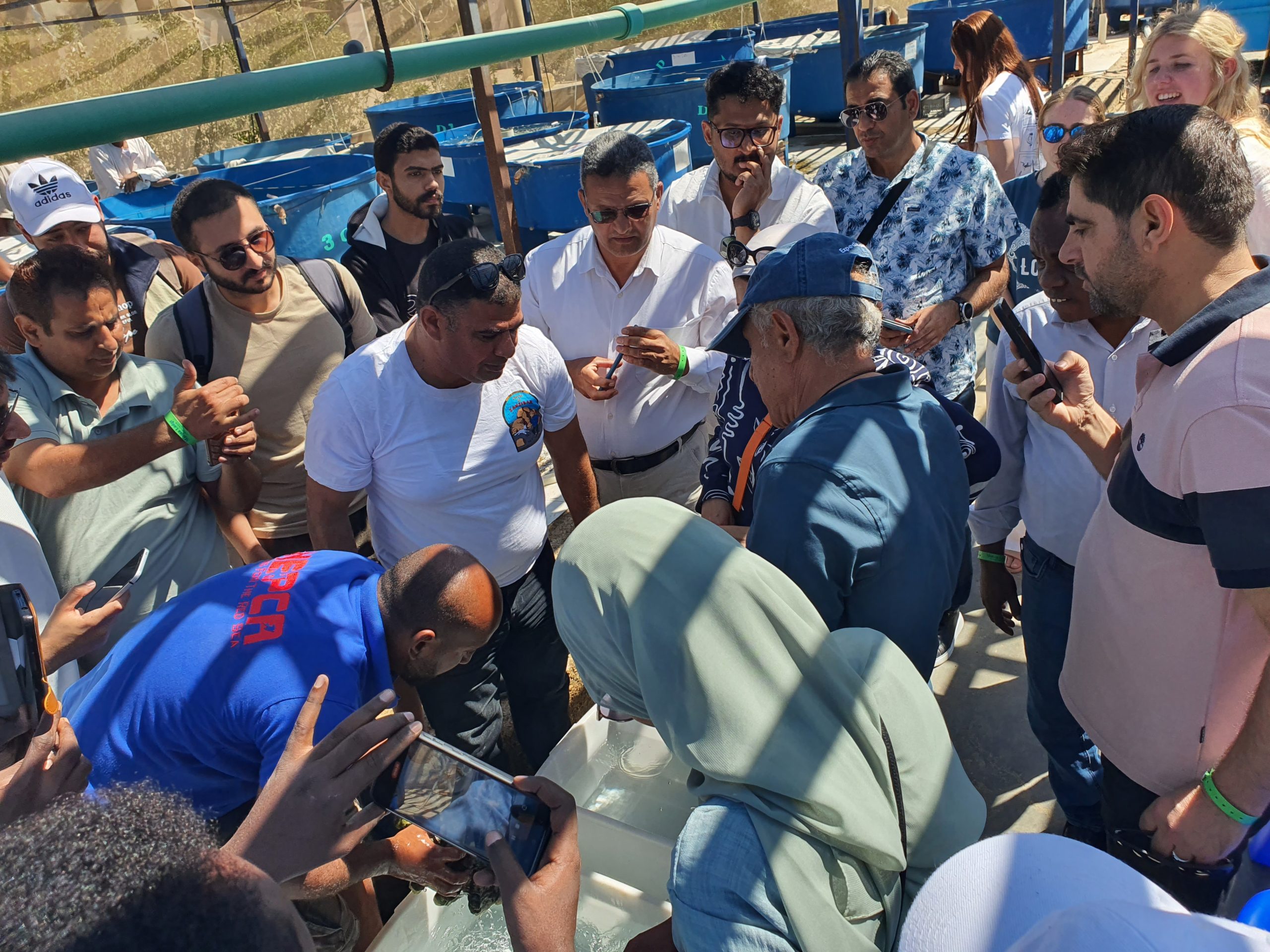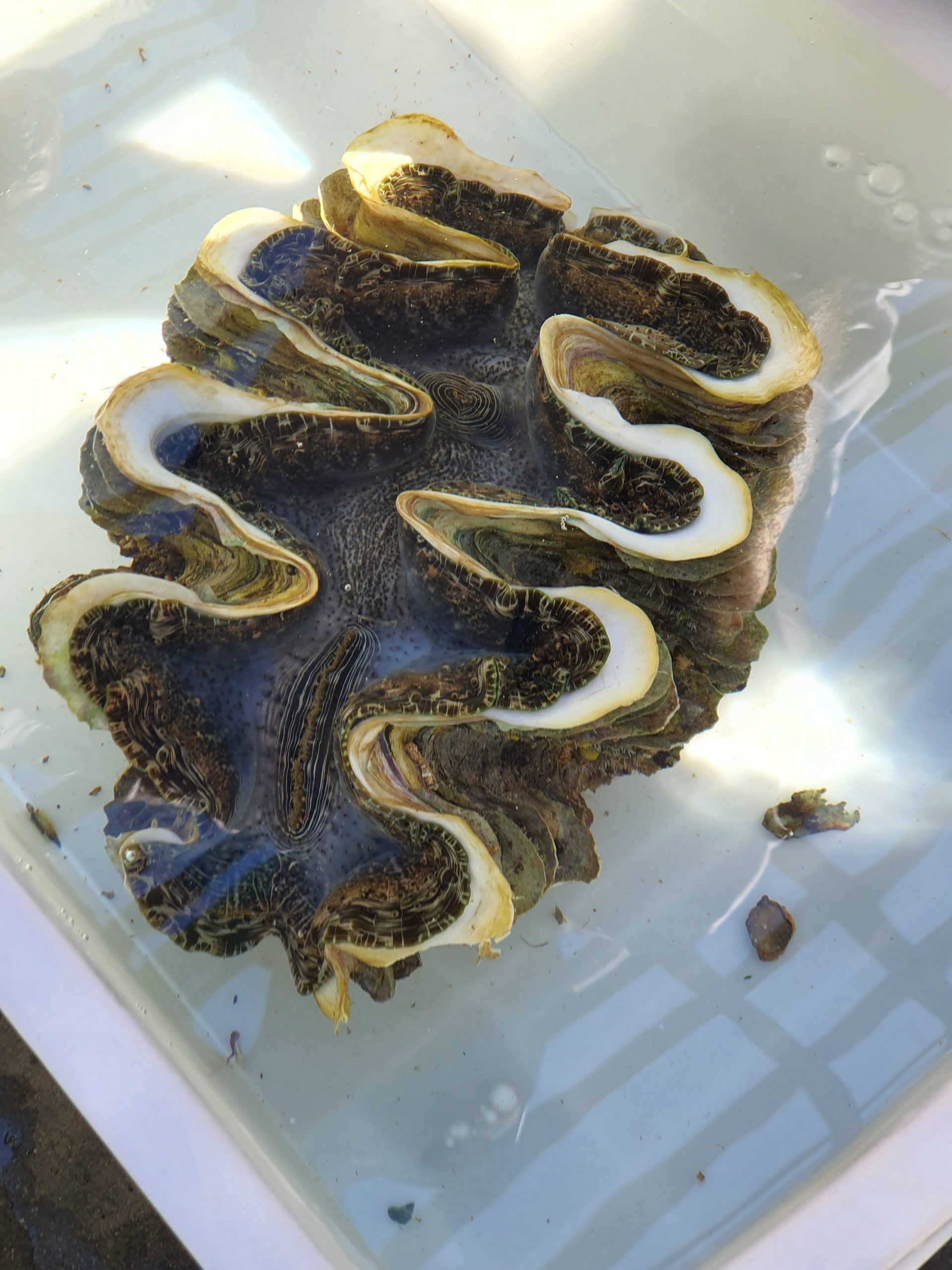In collaboration with the Egyptian Ministry of Environment, EEAA, and an Egyptian NGO (HEPCA), PERSGA (the Regional Organization for the Conservation of the Environment of the Red Sea and Gulf of Aden), organized a regional exchange and training program on “Community-based aquaculture of Giant Clam (Tridacna sp) and Sea Cucumber species in the Red Sea & Gulf of Aden” during the period 13-17 April 2025 in Hurghada and Port Ghalib (Egypt).
About 27 participants of PERSGA members state (Djibouti, Egypt, Jordan, Saudia Arabia, Somalia, Sudan & Yemen) were joined to this training program. The majority of the participants belonged to fisheries and Environment sectors in relative countries.
The training program focused on the fundamentals of aquaculture in the Red Sea and the challenges, the constrains and the opportunities. Also, the main objectives of this training program was exchanging knowledge, experiences, lessons learned, success stories and best practices in the filed of community-based aquaculture in the region.
The training program was divided into two parts tutorials part in EMARSGA (Hurghada) and practical part in HEPCA’s Education and Scientific Research Support Center (Port Ghalib, Marsa Alam).
The theoretical part covered the principal of aquaculture, the management of water quality and the know-how of the aquaculture along the Red Sea, while the practical part focused on induced spawning methods, larval rearing techniques for species like Tridacna (giant clam) and sea cucumber.
Participants also were explored how local communities—especially fishermen—can engage in such activities as alternative livelihoods, helping reduce pressure on fish stocks affected by overfishing.

